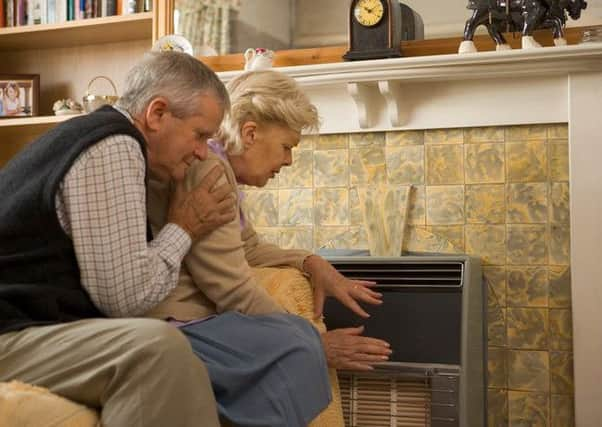Sarah Beattie-Smith: How high energy bills are making us ill


With fuel poverty now affecting nearly 27 per cent of households, it’s time for the Scottish Government to dramatically increase the level of spending on energy efficiency to make our homes warmer.
This week’s budget needs to give assurance to those facing another cold winter that change is on the way. According to the Scottish House Conditions Survey, fuel poverty now affects 26.5 per cent or 649,000 households. For the people living in those homes, that means they routinely spend more than ten per cent of their income on heating their home.
Advertisement
Hide AdAdvertisement
Hide AdThe impacts of living in fuel poverty are well documented, ranging from health problems like lung conditions to lower educational attainment. Today in Scotland, around a million people find themselves in fuel poverty as a result of high energy costs, low income, poor energy efficiency and the way energy is used in the home.
The good news is that 99,000 households have been lifted out of fuel poverty in the last year, and the number of people affected is now at the lowest level for a decade. The bad news is that we’re back where we started in 2007.
The drop in fuel poverty is largely down to falling energy prices, with only a third of the reduction coming from improvements to the energy efficiency of our homes. And therein lies the challenge for the Scottish Government.
Energy efficiency is the one driver of fuel poverty where the Scottish Government has all the devolved levers of power that they need to make a difference.
It is also the area of infrastructure investment that makes the biggest difference to public health, the economy and the climate, delivering a substantial return on investment, creating thousands of jobs in communities in every part of Scotland and improving people’s lives in the process. Yet spending on energy efficiency has actually decreased since the Government designated it a National Infrastructure Priority two years ago. What’s more, in 2016 the Scottish Government announced that they would invest “more than half a billion pounds in energy efficiency over the next four years” averaging £125m a year.
Yet the budget for the current year allocated just £114.5m for energy efficiency. At the very least, the Government needs to ensure that spending is now ramped up to meet the commitment made last year.
However, the bottom line is that even if the Government meets the spending commitments it has made, that money is nowhere near enough to eradicate poor energy performance as a driver of fuel poverty.
Consumer groups, fuel poverty charities and environmental organisations are clear that there needs to be a substantial increase in spending on energy efficiency if Scotland is to end the misery of fuel poverty and meet our ambitious climate change targets.
Advertisement
Hide AdAdvertisement
Hide AdOver the next ten years, we need to see an average of £450m of public money per year to improve the fabric of our homes. This week’s budget should start ramping up spending, starting at £240m over the coming year. It’s only with this scale of funding that Scotland stands a chance of ending fuel poverty once and for all.
Sarah Beattie-Smith is senior climate and energy policy officer at WWF Scotland
